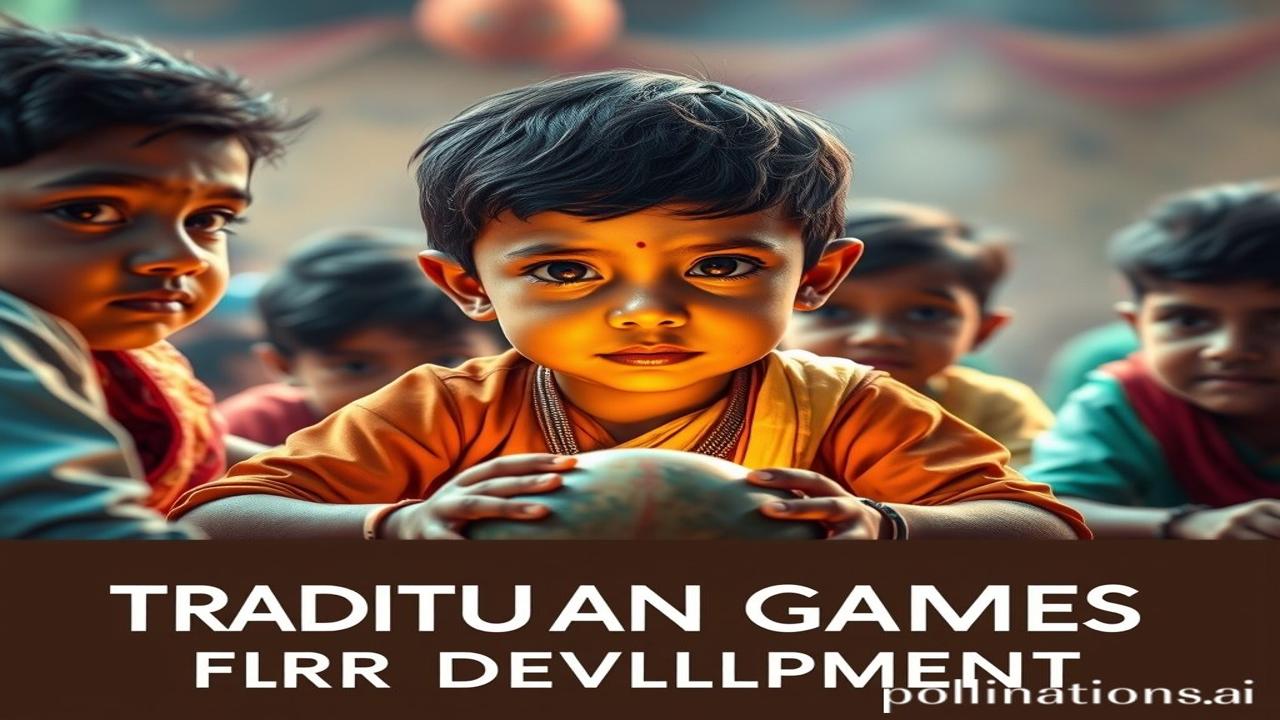Bachpan Ki Mitti: Rediscovering the Magic of Traditional Games for Children’s Development
Kabhi kabhi, aankhein band karke sochiye… woh dhool bhari dupahariyaan, nani ke ghar ka aangan, aur doston ke saath khelti hui bachpan ki yaadein. Kya mahak thi uss waqt? Shayad, nimbu paani ki meethi khushboo aur garam ret ki saundhi mehek… Waqt ki dhool mein, kuch kahaniyan chhup jaati hain, lekin unki yaad aaj bhi humare dil mein zinda hai. Aaj hum baat karenge unhi yaadon ki, unhi traditional games ki, jo bachpan mein humari zindagi ka ek anmol hissa hua karte the aur jo aaj bhi children’s development ke liye bahut important hain.
Traditional Games: Ek Historical Jhalak
Traditional games, woh khel jo humare ancestors khelte the, aaj bhi humari culture ka ek important part hai. Yeh games sirf time pass nahi the; they were a way to learn, to connect with each other, and to develop important skills. Inki origin kai hazaron saal pehle hui thi, aur yeh India ke har region mein different names aur variations ke saath exist karte hain. From ‘Lagori’ in Maharashtra to ‘Gilli Danda’ across North India, these games reflect the diverse culture of our country. These weren’t just about having fun; they were about building community, strategy, and physical fitness – long before PlayStations and Netflix!
Lekin, Why Were These Games So Important?
These games helped children develop motor skills, strategic thinking, teamwork, and problem-solving abilities. Imagine kids running around playing ‘Kho Kho’ – building stamina, agility, and coordination. Or think of ‘Kabaddi’ – requiring quick reflexes, strategic offense, and strong teamwork. Yeh games physically aur mentally dono tarah se children ko develop karte the.
Zameeni Sach: Bachpan Ki Galiyon Mein
Imagine a typical village in ancient India. Ma Yashoda apne bete Krishna ko khelti hui dekh rahi hai. Krishna aur unke dost ‘Gilli Danda’ khel rahe hain. Krishna’s sharp eyes and quick reflexes make him a natural at the game. Woh har baar danda ko perfect accuracy se hit karta hai.
Meanwhile, in a bustling town, young artisans play ‘Pachisi’ (a precursor to Ludo) after a long day of work. The game is not just a distraction; it is a way to relax their minds and sharpen their strategic thinking. The artisans use handcrafted dice and boards, showcasing their skills and creativity.
Ma Rukmini aaj mandir ja rahi hai, unki beti Radha apne saheliyon ke saath ‘Chuppan Chupai’ khel rahi hai. The sound of their laughter echoes through the village, filling the air with joy and innocence.
Dharohar Aur Pehchaan: Traditional Games Aaj
Today, in the age of digital games, the importance of traditional games often gets overlooked. But in villages and some urban communities, these games still survive. We see their presence in community festivals, family gatherings, and even some schools that are trying to revive these cultural treasures.
These games are part of our Bharatiyata – our Indianness. They connect us to our past, our culture, and our identity. They are a reminder of a simpler time when children learned through play, interacted with nature, and developed strong bonds with their communities.
Majedar Tathya Ya Bhram-Bhanjak
Log samajhte hain ki traditional games modern children ke liye boring hain, lekin asli sach yeh hai ki yeh games unke liye bahut beneficial ho sakte hain. Studies show that playing traditional games can improve children’s physical health, cognitive skills, and social-emotional well-being. Plus, they encourage children to spend time outdoors and interact with their peers, which is crucial for their overall development.
Drishya Aur Bhavnayein
Imagine the scene: The sun is setting, casting a golden glow on the village. The air smells of freshly baked bread and wood smoke. Children are running around, their laughter echoing through the fields. The sound of ‘Kabaddi Kabaddi’ fills the air, and the sight of colorful kites soaring in the sky creates a sense of joy and freedom. The touch of the cool earth beneath their bare feet, the taste of sweet sugarcane juice – these sensory experiences create lasting memories that connect them to their culture and their community.
Antim Vichar Ya Uddharan
In the words of Mahatma Gandhi: “The future depends on what we do in the present.” Let us not forget the importance of traditional games in shaping the future of our children. Let us revive these cultural treasures and ensure that our children have the opportunity to learn, grow, and connect with their roots.
“Khel khel mein seekh milti hai, seekh se jeewan banta hai” – In play, we find learning; through learning, we build a life.
